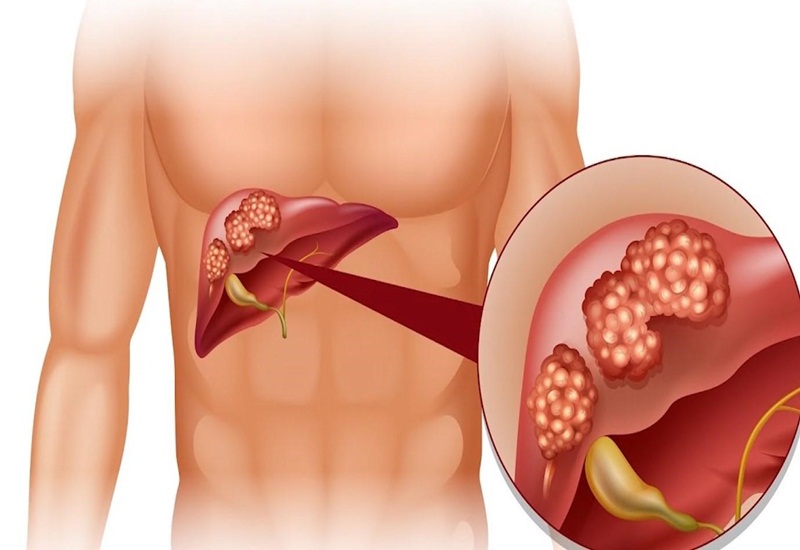Hepatitis B is a disease caused by infection with the hepatitis B virus (HBV). This is a chronic inflammation of liver cells, the more active the virus is, the more inflammation and damage to liver cells will increase. Some studies show that vitamin E has the effect of reducing inflammation due to its antioxidant effect, supporting the treatment of HBV.
1. What is hepatitis B?
Hepatitis B is an infection of the liver. It is caused by a virus. There is a vaccine to protect against it. For some people, hepatitis B is mild and short-lived. These “acute” cases do not always require treatment. But it can become chronic. If that happens, it can cause organ scarring, liver failure, cancer, and can even be life-threatening.
The disease is spread when people come into contact with the blood, open sores, or body fluids of someone who has the hepatitis B virus.
It is serious, but if you get it as an adult, it doesn’t last long. Your body fights it off within a few months, and you’re immune for the rest of your life. That means you can’t get it again. But if you get it at birth, it’s hard to get rid of.
“Hepatitis” means inflammation of the liver. There are other types of hepatitis. Viral diseases also include hepatitis A and hepatitis C.
2. Symptoms of hepatitis B
Short-term (acute) hepatitis B infection does not always cause symptoms. For example, it is rare for children under 5 years old to have symptoms if they are infected.
If you do have symptoms, they may include:
Jaundice (Your skin or the whites of your eyes turn yellow, and your urine turns brown or orange.)
Light-colored stools
Fever
Tiredness that lasts for weeks or months
Stomach problems such as loss of appetite, nausea, and vomiting
Abdominal pain
Joint pain
Symptoms may not appear until 1 to 6 months after you are infected with the virus, so you may not feel anything. About one-third of people do not have symptoms. They are only found out through a blood test.
Symptoms of long-term (chronic) hepatitis B infection do not always appear. If they do, they may be the same as those of a short-term (acute) infection.
The CDC says the number of people getting the disease has been decreasing. Rates have dropped from an average of 200,000 per year in the 1980s to about 20,000 in 2016. People between the ages of 20 and 49 are most likely to get it.
About 90% of infants and 25-50% of children between the ages of 1 and 5 will become chronically infected. In adults, about 95% will recover completely and not go on to develop chronic infection.

Short-term hepatitis B infection often does not show specific symptoms.
3. What is Vitamin E?
Vitamin E is a fat-soluble vitamin. It is found in many foods including vegetable oils, cereals, meat, poultry, eggs, fruits, vegetables, and wheat germ oil. It is also available as a supplement.
Vitamin E is used to treat vitamin E deficiency, which is rare but can occur in people with certain genetic disorders and in premature, low birth weight infants. Vitamin E is also used for many other conditions, but there is no good scientific evidence to support these other uses.
The American Heart Association recommends getting antioxidants, including vitamin E, from eating a balanced diet rich in fruits, vegetables, and whole grains rather than from supplements until more is known about the risks and benefits of supplementation.
One type of vitamin E is called vitamin E acetate, which is an ingredient in some vaping products. Using vaping products containing vitamin E acetate has been linked to serious lung injury.
4. Effects of vitamin E
Vitamin E is an important vitamin that is needed for the proper function of many organs in the body. It is also an antioxidant. This means that it helps slow down processes that damage cells.
5. Can patients with hepatitis B use vitamin E?
Previous studies have shown that vitamin E supplementation may help reduce inflammatory responses in the body. Some studies have also shown that it may help HBV seroconversion.
Despite the current array of studies, the long-term outcome of neonatally acquired HBV infection remains unclear. However, spontaneous or therapy-induced hepatitis B e antigen (HBeAg) seroconversion with the development of HBe antibodies is often considered a milestone in patients with persistent HBV infection, as it is often associated with remission of liver disease and provides a favorable course during long-term follow-up.
After HBeAg loss, serum HBsAg persists, but serum aminotransferase levels typically decline to normal or low values, and a significant reduction in HBV replication is observed in a large proportion of subjects developing HBeAb. However, in some of these patients, achieving HBeAg seroconversion is not associated with improvement of liver disease, instead these individuals continue to have liver damage of varying degrees and course and are at high risk of complications later in life. Persistent HBV-related infection is considered to be the result of an impaired immune response to this pathogen, and therefore, enhancing the antiviral immune response has become an innovative strategy to attempt to reduce infection, which still occurs at a very low rate. Based on this assumption, a randomized controlled trial was conducted in 2001 on adult patients with HBV hepatitis, showing beneficial effects on antiviral activities in these people.
As is known, vitamin E is an essential vitamin with antioxidant effects. Vitamin E has the effect of strengthening the body’s immune system. While chronic hepatitis B is a chronic inflammatory disease caused by the HBV virus. Hepatitis B virus causes chronic inflammation and liver cell damage. With the antioxidant effect of vitamin E, it helps reduce inflammatory reactions in the liver, fight against oxidative effects and strengthen the body’s immune system.





